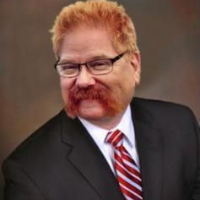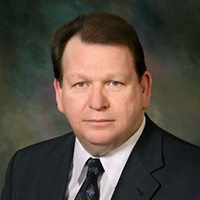Sterling Heights Criminal Lawyer, Michigan
Sponsored Law Firm
-
 x
x

Click For More Info:
-
The Law Office of Thomas Piotrowski
105 Pearl St Ypsilanti, MI 48197» view mapCriminal Defense Proudly Serving Washtenaw County
You need an attorney with criminal defense knowledge who will vigorously protect your rights and interests.
800-893-2781
Nickolas Kenny Hannawa
✓ VERIFIEDNickolas K Hannawa is a successful attorney who has been practicing law in Michigan since 2014. He is also a business and property owner, entrepreneur... (more)
Gary R. Lazar
✓ VERIFIEDGary R. Lazar is a practicing lawyer in the state of Michigan handling criminal defense matters.
Arthur A. Garton
✓ VERIFIEDArthur (Art) A. Garton handles all matters of complex criminal law, family law, personal injury and business/civil litigation. He is one of two Macomb... (more)
Gary R. Sanfield
✓ VERIFIEDGary Sanfield, an experienced, aggressive, and effective Michigan attorney has over 40 years of experience and he is ready to fight for you. His excel... (more)
Brent Jaffe
Upon passing the bar Attorney Brent Jaffe joined his father's firm to form Jaffe Law Group. "I was drawn to the practice of law because this professio... (more)
David J. Poulton
✓ VERIFIEDDavid Poulton is a practicing lawyer in the state of Michigan. He received his J.D from Michigan State University College of Law in 1998.
Elliot D. Margolis
✓ VERIFIEDMr. Margolis has been rated “highly qualified” by judges and other attorneys, according to legal rating service Martindale-Hubbell. He is a member... (more)
Shawn J. Coppins
✓ VERIFIEDShawn Coppins is an aggressive plaintiff's attorney and is one of the firm's founding partners.Mr. Coppins was born and raised in the Metro-Detroit ar... (more)
Richard M. Halprin
✓ VERIFIEDAs an experienced attorney and district court magistrate, Richard Halprin has cultivated a network of relationships within the legal community, includ... (more)
Dean Elliott
✓ VERIFIEDCo-Counsel on the largest police misconduct verdict in Michigan history and the largest verdict in Michigan this year! On November 3, 2016, a jury in... (more)
 Thomas Piotrowski Ypsilanti, MI
Thomas Piotrowski Ypsilanti, MI AboutThe Law Office of Thomas Piotrowski
AboutThe Law Office of Thomas Piotrowski Practice AreasExpertise
Practice AreasExpertise










